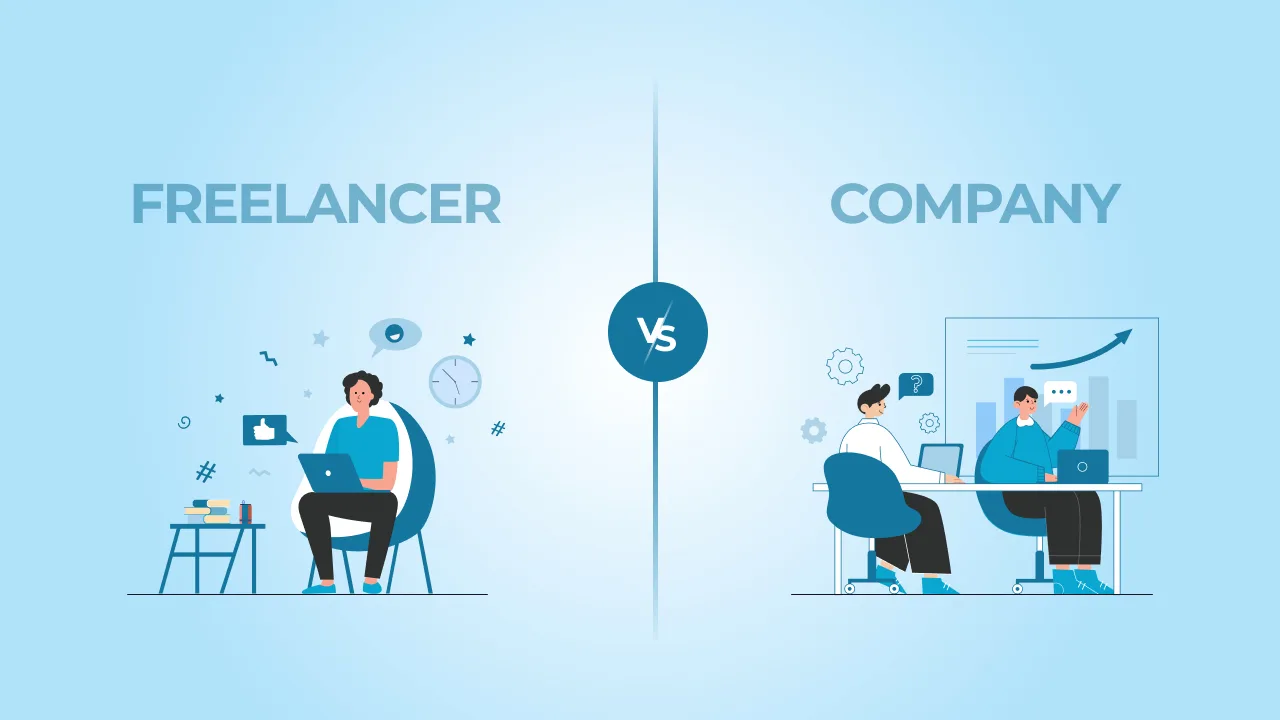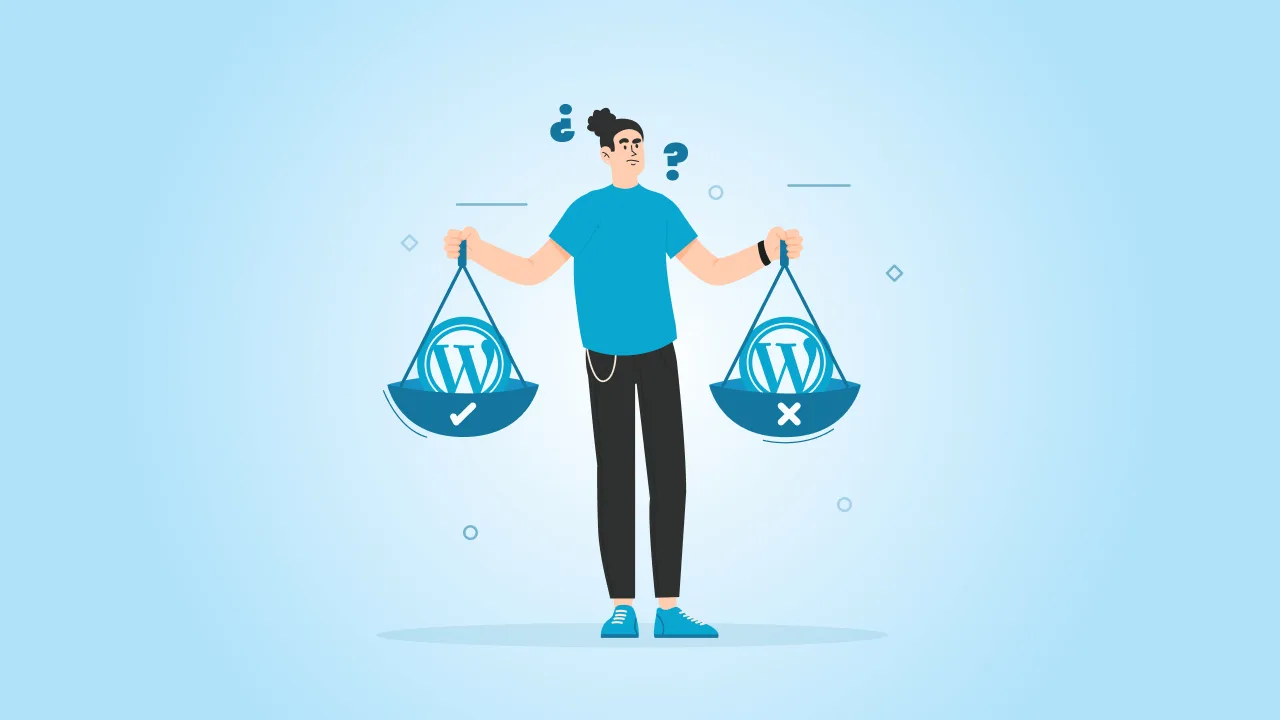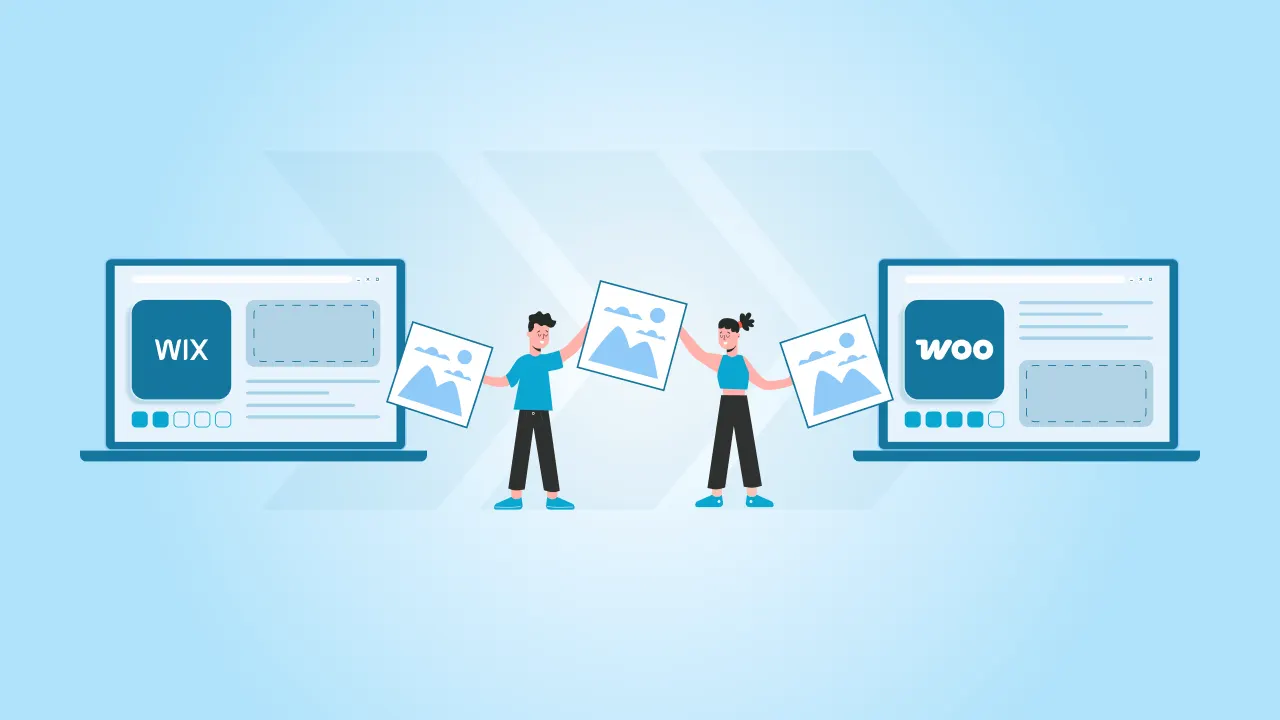Starting or growing an online business in 2026? You are in the right place!
Whether you are just getting started or looking to expand, picking the right e-commerce platform is key to your success. But let’s face it—there are a lot of options out there, and finding the perfect one can feel like a huge task.
The good news? There’s an e-commerce platform for every kind of business. Some are perfect for beginners and small businesses, while others offer advanced tools for bigger companies. The trick is figuring out which one fits your specific needs, whether it’s ease of use, affordability, or powerful features for handling a large operation.
In this guide, we will walk you through the best e-commerce platforms for 2026, breaking them down by different business types—small businesses, startups, B2B companies, and more. No matter where you are in your journey, this guide will help you find the right platform to build and grow your online store.
Ready to get started? Let’s dive in and find your perfect match!
1. Best E-commerce Platforms for Small Businesses
Small businesses need e-commerce platforms that are easy to set up, affordable, and offer the right balance of features without overwhelming you. Whether you are running a local shop or a growing online brand, these platforms make it simple to manage your store while keeping costs under control.
Shopify
Shopify is a leading e-commerce website development platform that enables businesses of all sizes to create and manage online stores. It offers a user-friendly interface, customizable templates, and a wide range of tools for inventory management, payment processing, and shipping integration. Shopify also supports omnichannel selling, allowing merchants to sell across multiple platforms, including social media and physical stores.
- Why it’s great for small businesses: Shopify is one of the most popular e-commerce platforms, and for good reason. It’s incredibly user-friendly, even if you are not tech-savvy. Shopify takes care of the technical stuff, like hosting and security, so you can focus on your products and customers.
- Key features:
- Simple, step-by-step setup process
- Wide variety of professional-looking themes
- Built-in marketing tools (email, SEO, social media)
- Excellent customer support, available 24/7
| Pros | Cons |
|---|---|
| No coding required | Transaction fees unless you use Shopify Payments |
| Scalable and grows with your business | Limited customization options for advanced needs |
| Access to a huge library of apps | |
| Excellent customer support |
Best for: Small businesses that want a hassle-free, professional store without needing to hire developers.
BigCommerce
Designed for fast-growing businesses, this robust e-commerce platform offers a comprehensive set of tools to build and scale online stores. It provides a flexible, user-friendly interface with customizable templates and advanced SEO features for enhanced visibility. Supporting multi-channel selling, merchants can easily reach customers across marketplaces, social media, and physical stores. With a focus on scalability, security, and a rich ecosystem of integrations, the platform is ideal for small businesses and enterprises looking to expand their e-commerce operations.
- Why it’s great for small businesses: BigCommerce is a solid alternative to Shopify if you are looking for more customization options without the transaction fees. It’s great for businesses that plan to scale up or need more control over their store’s functionality.
- Key features:
- No transaction fees on any plan
- Built-in tools for SEO and marketing
- More advanced customization options for growing businesses
- Supports multiple sales channels (eBay, Amazon, Facebook)
| Pros | Cons |
|---|---|
| No transaction fees | Slightly steeper learning curve compared to Shopify |
| Excellent built-in features without needing third-party apps | Fewer free themes are available. |
| Supports large product catalogs | |
| More flexibility for customization |
Best for: Small businesses that need flexibility and room to grow, especially if you want more control over your store’s design and functionality.
Let cmsMinds simplify the process. We will guide you through selecting the best e-commerce platform and customize it to your needs.
2. Best E-commerce Platforms for Startups
Startups need flexibility, affordability, and room to grow quickly. As a new business, you might want a platform that offers powerful features but won’t overwhelm you with complexity or costs. Here are the best platforms for startups in 2026.
WooCommerce
Tailored for WordPress users, this open-source e-commerce website development platform seamlessly integrates with existing websites to create fully customizable online stores. Offering flexibility and a wide range of plugins, it allows businesses to personalize everything from product listings to payment gateways. WooCommerce supports extensive features like inventory management, shipping options, and various marketing tools, making it suitable for both small and large-scale businesses.
- Why it’s great for startups: WooCommerce is a plugin for WordPress, making it a flexible and highly customizable solution. It’s open-source, meaning you have full control over your store’s functionality, design, and features, which is great if you are looking to grow and adapt quickly.
- Key features:
- Free to use (with optional paid extensions)
- Complete control over customization
- Large community of developers and extensions
- Integrates seamlessly with WordPress for content-driven startups
| Pros | Cons |
|---|---|
| Free to start (pay for add-ons only if needed) | Requires knowledge of WordPress and hosting |
| Highly customizable with thousands of plugins and themes | Can get expensive with hosting and extensions |
| Scalable for growing businesses | Maintenance and updates are your responsibility |
| Ideal for content-heavy websites |
Best for: Startups looking for a highly customizable and flexible e-commerce solution, especially if they are already using WordPress.
Squarespace
Squarespace offers a variety of professionally designed templates and built-in e-commerce tools for inventory management, secure payment processing, and shipping integration. Its intuitive drag-and-drop interface and built-in marketing features, like SEO optimization and email campaigns, make it ideal for creatives and small businesses looking to showcase their products beautifully. With a focus on design and simplicity, it provides a seamless way to build and grow an online store.
- Why it’s great for startups: Squarespace is known for its beautifully designed templates and simple, drag-and-drop editor. For startups, it’s a great option if you want a visually appealing store without the hassle of technical setups or custom coding.
- Key features:
- Stunning, designer-quality templates
- Easy-to-use drag-and-drop interface
- Built-in SEO and marketing tools
- Ideal for showcasing creative products or services
| Pros | Cons |
|---|---|
| Beautiful, modern templates | Limited third-party app integrations |
| No coding or technical skills needed | Not ideal for large product catalogs |
| Built-in marketing and SEO tools | Less scalable for more complex business needs |
| Perfect for visual and creative startups |
Best for: Startups with a focus on design and simplicity, or those selling creative products like art, photography, or services.
3. Best e-commerce Platforms for B2B
B2B (business-to-business) e-commerce has its own unique set of challenges. Whether it’s handling bulk orders, managing complex pricing structures, or integrating with enterprise systems, B2B companies need platforms that go beyond basic online stores. This is where CPQ solutions (Configure, Price, Quote) come in—helping businesses automate pricing, streamline quotes, and reduce errors when managing large or custom orders.
Here are the top platforms for B2B businesses in 2026.
Magento (Adobe Commerce)
This powerful, open-source e-commerce platform is highly customizable and designed to meet the needs of large, complex businesses. Magento (now Adobe Commerce) offers advanced features for managing large product catalogs, multi-store capabilities, and flexible integration options with third-party systems. It provides a scalable infrastructure with robust tools for handling everything from inventory and order management to marketing and customer experience personalization.
- Why it’s great for B2B: Magento, now part of Adobe Commerce, is one of the most powerful e-commerce platforms available, known for its flexibility and ability to handle large, complex stores. It’s ideal for B2B companies that need custom pricing, advanced product catalogs, and integration with other systems.
- Key features:
- Highly customizable with a modular architecture
- Supports bulk ordering, custom pricing, and complex catalogs
- Advanced B2B tools like quotes, customer accounts, and tailored pricing
- Easily integrates with ERP, CRM, and other business systems
| Pros | Cons |
|---|---|
| Extremely customizable for unique needs | Requires technical expertise or a development team |
| Great for large inventories and complex B2B operations | High upfront and ongoing costs for development and hosting |
| Built-in B2B features (quotes, custom pricing, etc.) | Can be overwhelming for small teams |
| Robust ecosystem of plugins and integrations |
Best for: Large B2B businesses that need complete control and customization over their e-commerce operations, especially those with complex ordering systems.
Shopify Plus
Shopify Plus is an advanced e-commerce platform tailored for high-growth businesses, offering enhanced features and scalability beyond the standard Shopify plans. It provides a robust infrastructure capable of handling significant traffic and sales volume, ensuring reliability with unlimited bandwidth and web hosting. Merchants benefit from a suite of tools designed for enterprise-level operations, including advanced reporting, custom checkout experiences, and dedicated support.
- Why it’s great for B2B: Shopify Plus is the enterprise version of Shopify, offering additional features specifically designed for B2B operations. It’s a great option for businesses looking for simplicity and ease of use while still needing features like custom pricing and bulk ordering.
- Key features:
- Dedicated wholesale channels for B2B customers
- Advanced automation tools to streamline processes
- Scalable, with the ability to handle large volumes of orders
- Customizable checkout and payment options
| Pros | Cons |
|---|---|
| Easy to use, even at enterprise level | Higher cost compared to regular Shopify plans |
| Dedicated features for wholesale and B2B sales | Limited customization compared to platforms like Magento |
| 24/7 priority support for Shopify Plus users | |
| Strong integration with popular business apps |
Best for: Growing B2B companies looking for a user-friendly platform that offers powerful B2B tools without the complexity of fully customized solutions.
4. Best e-commerce Platforms for Enterprises
Large enterprises need e-commerce platforms that can handle high traffic, complex operations, and deep integrations with other business systems. Scalability, performance, and the ability to manage multiple stores or channels are essential. Here are the best platforms for enterprise-level businesses in 2026.
Salesforce Commerce Cloud
Salesforce offers robust features for managing online storefronts, including AI-driven product recommendations, inventory management, and omnichannel selling capabilities. With its strong integration into the Salesforce ecosystem, businesses can leverage customer data to create targeted marketing and personalized customer interactions.
- Why it’s great for enterprises: Salesforce Commerce Cloud is a top choice for enterprises that want an all-in-one solution with strong customer relationship management (CRM) integration. It’s designed for businesses that need to manage large-scale operations and offer a seamless experience across multiple channels.
- Key features:
- Seamless integration with Salesforce’s CRM for a unified customer view
- Omnichannel capabilities, including salesforce POS system, social media, and marketplaces
- AI-powered tools for personalization and customer engagement
- Scalability for high-traffic, global businesses
| Pros | Cons |
|---|---|
| Excellent omnichannel support | High cost, especially for smaller enterprises |
| Deep integration with Salesforce CRM | Requires technical expertise for setup and maintenance |
| AI-powered personalization tools | Customization can be limited without developer support |
| Built for global operations |
Best for: Large enterprises that need deep CRM integration and an omnichannel experience to engage customers across multiple platforms and regions.
Oracle Commerce
Integrated with Oracle’s broader ecosystem, Oracle Commerce allows businesses to leverage real-time customer insights and analytics to optimize sales strategies and customer experiences. Known for its scalability and customization capabilities, Oracle Commerce is well-suited for large businesses looking to handle high volumes of transactions and create tailored, dynamic shopping experiences across digital and physical touchpoints.
- Why it’s great for enterprises: Oracle Commerce is built for enterprises that need high performance, advanced features, and the ability to handle complex, large-scale operations. It’s perfect for businesses that require extensive customization and personalized shopping experiences.
- Key features:
- Highly customizable to fit unique business needs
- Powerful analytics and reporting tools for data-driven decision-making
- Support for multi-channel and multi-site operations
- Advanced product recommendation engines and personalization tools
| Pros | Cons |
|---|---|
| Exceptional scalability for large businesses | High implementation and maintenance costs |
| Fully customizable for complex business needs | Requires a skilled development team |
| Advanced personalization and customer experience tools | Can be too complex for smaller enterprises |
| Supports multiple sites and channels |
Best for: Global enterprises with complex e-commerce needs, looking for a customizable and scalable solution that can handle multiple markets and large transaction volumes.
5. Best e-commerce Platforms for Digital Products and Subscriptions
Selling digital products or offering subscriptions requires specific e-commerce features, like file delivery, recurring payments, and membership management. If you are in the business of selling ebooks, software, online courses, or subscription services, you need a platform that can handle these unique needs smoothly. Here are the best platforms for digital products and subscriptions in 2026.
Sellfy
With built-in marketing tools such as email marketing, discount codes, and upselling, Sellfy simplifies the process of reaching and engaging with your audience. Additionally, it supports multiple payment options, including PayPal and Stripe, ensuring seamless transactions for your customers.
- Why it’s great for digital products: Sellfy is an excellent choice for creators and small businesses that focus on selling digital goods. It’s easy to set up and has built-in tools for selling digital files, physical products, and subscriptions, making it an all-in-one solution for digital entrepreneurs.
- Key features:
- Simple, user-friendly interface
- Built-in tools for selling digital products, subscriptions, and print-on-demand items
- Recurring payment options for subscription models
- No need for third-party apps to handle digital delivery
| Pros | Cons |
|---|---|
| Easy to set up and start selling quickly | Limited design customization options |
| Recurring payment and subscription management | Not ideal for large-scale or complex stores |
| Supports multiple product types (digital, physical, subscriptions) | Fewer advanced e-commerce features |
| Affordable pricing plans |
Best for: Digital creators and small businesses selling digital goods or subscriptions, looking for a simple, no-fuss platform.
Substack
Substack provides an easy-to-use interface where creators can build a following by offering free or paid subscription-based content. With integrated payment processing, it allows writers to earn directly from their readers while maintaining full ownership of their content and subscriber lists. Substack is ideal for those looking to engage deeply with their audience, combining the simplicity of a newsletter with the potential to grow a loyal, paying readership.
- Why it’s great for subscriptions: Substack is designed for writers, content creators, and businesses that want to offer paid subscription services, especially through newsletters. It’s a platform focused on making it easy to monetize content without needing any e-commerce experience.
- Key features:
- Built-in tools for creating and distributing newsletters
- Easy to set up paid subscriptions with recurring payments
- Community-building features like comments and discussion threads
- No upfront costs; Substack takes a percentage of your earnings
| Pros | Cons |
|---|---|
| Perfect for content creators offering paid newsletters | Limited e-commerce functionality outside of subscriptions |
| No upfront costs or setup fees | Higher transaction fees compared to other platforms |
| Easy to manage subscriptions and community | Not suitable for businesses selling physical or digital products |
| Strong focus on community engagement |
Best for: Writers, bloggers, and content creators who want to offer subscription-based content, especially through newsletters, without needing a full e-commerce store.
6. Best e-commerce Platforms for Creators and Service-Based Businesses
For creators and service-based businesses, e-commerce platforms need to focus on showcasing portfolios, booking services, and selling personalized products. Whether you are a designer, consultant, or photographer, having the right platform to manage client relationships and sell services is crucial. Let’s look at the best options for 2026.
Wix
With its drag-and-drop editor and a wide range of customizable templates, users can easily build and design websites for e-commerce, blogs, portfolios, and more. Wix also offers built-in tools for SEO, marketing, and online selling, making it a versatile platform for small businesses and creatives. Additionally, it provides features such as secure hosting, domain management, and third-party integrations to enhance functionality and user experience.
- Why it’s great for service-based businesses: Wix offers a drag-and-drop website builder that’s perfect for creators, freelancers, and service providers. With its flexible design and built-in tools for bookings and service payments, it’s an all-in-one solution for professionals who need a visually appealing site with e-commerce functionality.
- Key features:
- Intuitive drag-and-drop editor with beautiful templates
- Built-in tools for booking services and accepting payments
- Integrated blog, SEO tools, and marketing features
- App market to add extra features for your specific needs
Best for: Creators and service-based businesses looking for a simple yet flexible platform to showcase their portfolio, accept bookings, and sell services or digital products.
Squarespace
Squarespace is an all-in-one website builder known for its elegant design templates and user-friendly interface, allowing users to create professional websites without coding. It offers a variety of customizable features for e-commerce, blogging, portfolios, and business websites, along with integrated tools for SEO, analytics, and marketing. Squarespace’s drag-and-drop functionality makes it easy to design visually stunning sites, while built-in e-commerce tools support product listings, payment processing, and inventory management.
- Why it’s great for creators: Squarespace is well-known for its elegant, design-focused templates, making it a top choice for creators who want their website to reflect their personal brand. It’s also great for professionals who need a platform to sell services, schedule appointments, or showcase portfolios.
- Key features:
- Sleek, visually stunning templates ideal for creatives
- Tools for scheduling appointments and accepting service payments
- Integrated marketing tools, including email campaigns and social media
- Easy setup and mobile optimization
| Pros | Cons |
|---|---|
| Stunning templates that are easy to customize | Limited third-party app integrations |
| Built-in scheduling tools for services | Not the best for large-scale e-commerce |
| Ideal for visual content and portfolios | Limited flexibility in e-commerce features |
| No coding needed to create a professional site |
Best for: Photographers, designers, consultants, and other creators who need a visually appealing site with integrated service-based tools like scheduling and payment options.
A Few Tips for Choosing the Right E-commerce Platform
- Know your needs: Match the platform to your business size and goals.
- Consider your budget: Account for platform costs, including fees and add-ons.
- Ease of use: Choose a platform that’s easy to manage without tech skills.
- Customization: Look for flexibility in design and features.
- Scalability: Ensure the platform can grow as your business expands.
- Payment options: Check compatibility with your preferred payment gateways.
- SEO & marketing tools: Opt for strong SEO and built-in marketing features.
- Mobile-friendly: Choose a platform that’s optimized for mobile shoppers.
- Support: Reliable customer support is crucial for quick problem-solving.
- Security: Look for SSL, PCI compliance, and fraud protection features.
Conclusion
Choosing the right e-commerce platform is one of the most important decisions you will make for your business in 2026. The platform you select will influence everything from how easy it is to manage your store to how quickly you can scale your operations. The good news? There’s no one-size-fits-all solution, and that’s a good thing! Whether you are a small business looking for something easy to use, a startup needing flexibility, or an enterprise requiring scalability, there’s a platform out there designed to meet your needs.
And no matter which platform you choose, the key is to find one that aligns with your business goals and growth plans. As you continue to grow and evolve, your e-commerce platform should grow with you, offering the tools and support you need to succeed in the competitive online market.
So, take your time, evaluate your options, and pick the platform that will help you take your business to the next level in 2026!
Schedule a free consultation with cmsMinds and get personalized recommendations to fit your business goals.





